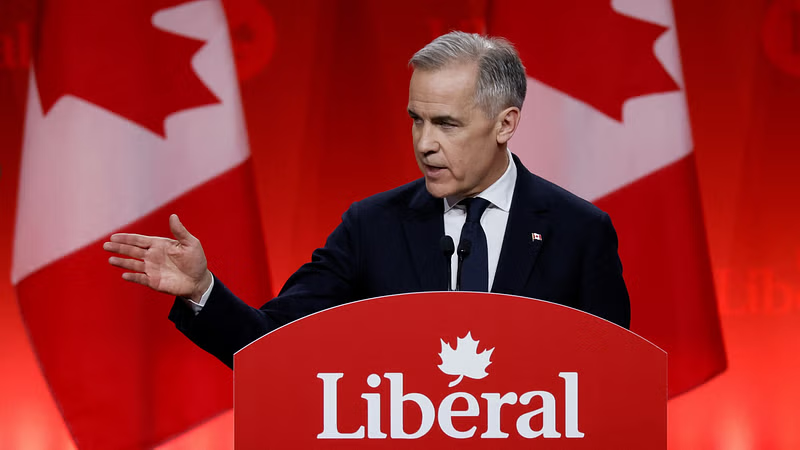Mark Carney’s surprise victory in Canada’s federal election has reignited hope in New Delhi that a frosty chapter in India-Canada ties may soon thaw. The former central banker turned politician campaigned on a platform of pragmatic diplomacy and economic diversification, explicitly naming India as a top priority. His win promises swift action on stalled trade talks, deeper cooperation in cutting-edge sectors, and a more predictable landscape for the millions of Indian students and professionals who call Canada home.
Diplomatic Reset
From day one of his campaign, Carney underscored the “incredible importance” of rebuilding relations with India—on personal, economic and strategic levels. He has vowed to move past the diplomatic impasse triggered by mutual expulsions in 2023, telling reporters that the Khalistani-related tensions “could be resolved with mutual respect.”
Within hours of his victory, Indian officials quietly signalled they were prepared to restore their High Commissioner to Ottawa, a step that would normalise diplomatic channels after last year’s rupture. Carney’s visit to a Hindu temple for Ram Navami celebrations—unprecedented for a Canadian political leader—further demonstrated his desire to blend cultural outreach with statecraft, and to reassure India’s large diaspora that Ottawa values their dual heritage.
Trade and Economic Cooperation
A casualty of the diplomatic freeze was the Comprehensive Economic Partnership Agreement (CEPA), long seen as a linchpin for expanding bilateral trade beyond natural resources. Carney has already indicated he wants to revive CEPA negotiations, framing India as a “like-minded” partner crucial to Canada’s strategy of diversifying away from U.S. markets.
Under Carney’s stewardship, sectors such as artificial intelligence, fintech, green energy and higher education are poised for renewed collaboration. In 2023, bilateral services trade reached CAD 13.49 billion; officials in both capitals now see scope to accelerate that growth by leveraging Carney’s deep network in global finance and academia.
Diaspora and Cultural Engagement
Canada is home to roughly 2.8 million people of Indian origin—a community Carney termed a “bedrock of our shared prosperity.” He has signalled a tougher stance on foreign extremists operating on Canadian soil, seeking to balance New Delhi’s legitimate security concerns with Ottawa’s tradition of welcoming immigrants and granting political freedoms.
Meanwhile, the defeat of pro-Khalistan elements in last month’s election, and the resignation of prominent NDP voice Jagmeet Singh, have eased one of India’s biggest irritants. Carney and Prime Minister Narendra Modi have already exchanged warm congratulatory messages, with Modi emphasising “shared democratic values” and “unlocking greater opportunities” for business, research and cultural exchange.
Immigration and Student Mobility
Carney’s Liberal Party manifesto proposes capping international students and temporary workers at under 5 percent of Canada’s population by 2027 (down from 7.3 percent), while streamlining credential recognition and expediting visa processing. For India, which sends the largest cohort of foreign students to Canadian campuses, this promises a more transparent, predictable environment.
Complementing these measures is the new “In-Canada Focus” stream, earmarking nearly 83,000 permanent residency slots for those already in the country on student or work permits. The initiative is expected to smooth the path from study to skilled employment and long-term settlement—a win-win for Canada’s labour market and India’s youth seeking global exposure.
Financial and Regulatory Collaboration
Carney’s pedigree as a “crisis-fighting” governor of both the Bank of Canada and the Bank of England brings a unique asset to bilateral engagement. Indian regulators are eyeing enhanced cooperation on banking standards, cross-border fintech innovation and climate-related financial risk frameworks—areas where Carney’s influence in G7 circles could open doors.
His reputation for steady leadership in turbulent times reassures New Delhi that Canada remains a reliable partner amid global economic uncertainties. Joint task forces on sustainable finance, co-chaired by Carney appointees and Indian officials, are expected to launch within months.
Outlook
Mark Carney’s ascent marks the end of a chill that threatened to derail one of the most promising emerging bilateral relationships. With diplomatic channels reopening, trade talks rebooting, and fresh frameworks for student and professional migration in place, both nations appear ready to chart a forward-looking agenda. As Carney settles into office, the coming year will test whether this strategic reset can deliver tangible benefits for businesses, academics and citizens on both sides of the Pacific.




